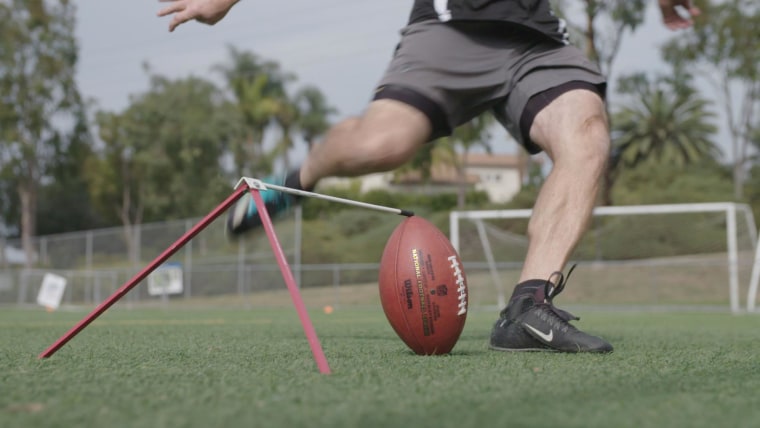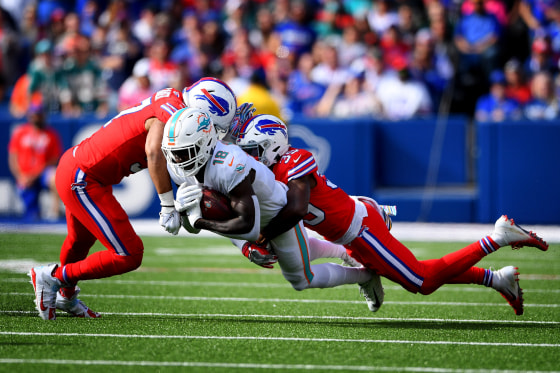Update (October 29, 10:00 a.m. ET): The Miami Dolphins did not, in fact, beat the Pittsburgh Steelers on Monday Night Football, losing 14-27.
We human beings can be an irrational bunch. We buy tickets to lotteries we have no appreciable chance of winning. Vote for politicians whose policies threaten our own interests. Crave foods that aren’t good for us. Root for the Miami Dolphins.
If the proverbial definition of insanity is doing the same thing over and over again while expecting a different outcome, then nothing could be less sane in 2019 than being a Dolphins fan. And yet, there they were on Oct. 13, nearly 60,000 paid ticket holders at Miami’s Hard Rock Stadium, watching the home team’s 17-16 loss to their previously winless opponents from Washington. The next week, the Dolphins lost to the Buffalo Bills, dropping Miami to 0-6 on the season, adding to a nine-game losing streak dating to last year.
If the proverbial definition of insanity is doing the same thing over and over again while expecting a different outcome, then nothing could be less sane in 2019 than being a Dolphins fan.
It’s a streak the team is not favored to break on Monday night when it takes on the Pittsburgh Steelers. Dolphin fans hardly suffer alone in the modern sports universe, however.
One day before Miami’s loss to the Redskins, more than 22,000 college football fans turned out to watch their own University of Akron Zips drop a 10th consecutive game — this one 26-3, to rival Kent State.
And less than a week before, Minnesota’s Target Field sold out as fans of the beloved Twins tied a baseball record by losing their 16th playoff game in a row, this one a season-ending 5-1 defeat to the New York Yankees.
So much of being a sports fan is tied up in the thrill of victory and the vicarious ego boost provided by association, however adjacent, with such glory. How, then, to explain why fans stick with a team even when it loses at a record-setting clip?
For one, there’s identity. Many sports allegiances grow out of civic affiliation or family tradition. These are ties that bind. When our child blows their cue at the elementary school play, we don’t banish them, and neither do we disown the team we grew up rooting for when they blow a game (or a baker’s dozen).
But sticking with a losing squad is about more than loyalty and camaraderie. In fact, contrary to common sense, rooting for a loser can be a reinforcing experience. When the team we follow takes a turn for the hapless, the bond we feel toward it might actually grow stronger.
Behavioral scientists refer to this as “effort justification.” The idea is that when we make sacrifices in pursuit of a goal, we tend to validate these efforts by inflating our sense of the goal’s attractiveness. In other words, we grow to love that which we suffer to achieve.

In this manner, the suffering sports fan shares much in common with the fraternity pledge. Across different types of organizations, one reason why hazing and other initiation rites are so tough to stamp out is that the more demeaning a group’s initiation, the more loyalty its members subsequently show, according to researchers.
The (usually unconscious) thinking goes something like this: I just put myself through a miserable ordeal in order to join this group; the only rational justification is that the group must be awesome.
Another kindred spirit in effort justification? The IKEA customer. It turns out that rooting for the Miami Dolphins is a lot like assembling an Arkelstorp or a Fjälkinge, says Michael Norton of the Harvard Business School, who recently conducted with colleagues a series of studies indicating that people tend to inflate their valuation of self-made products. Participants in this research viewed their own creations — whether origami or LEGO — as worth more than other people did.
Another kindred spirit in effort justification? The IKEA customer. It turns out that rooting for the Miami Dolphins is a lot like assembling an Arkelstorp or a Fjälkinge.
This aspect of the IKEA business model is ingenious. The company exempts itself from assembly, outsourcing — to us —the responsibility of navigating hieroglyphic instructions and wood-gluing bagfuls of dowels. And then all of this suffering just begets more loyalty. Because we had to exert ourselves, we end up valuing the result more than we should, overlooking the conclusions readily apparent to unbiased parties in our living room: the Bjursnäs is rickety and the Godmorgon is crooked.
Effort justification doesn’t just happen with Swedish furniture. When early adopters camp out overnight outside the Apple Store, awaiting the newest iToy, it boosts their attachment to the device. Extreme lengths required to obtain a product often change how we assess it. After all, only a fool would wait for hours to buy something mediocre. And we rarely see ourselves as fools … even those among us who still admit to being Knicks fans.
Don’t get me wrong: More than anything, sports fans root to win. The real definition of insanity would be to suggest otherwise. As lovable as the Cubs were as century-long losers, no one in Chicagoland is trading in their memories or memorabilia of the ecstasy of 2016 anytime soon.
But cut Dolphins fans some slack. It’s been a tough stretch, and they may not be as irrational as they appear. In 2030, when a 53-year-old Tom Brady wins yet another Super Bowl, Patriots Nation will greet their latest trophy with a yawn of numb familiarity. The year after that, though? When aqua and orange ticker tape rains down on the streets of Miami? The bonds forged by all of today’s losing will make that win just that much sweeter.

